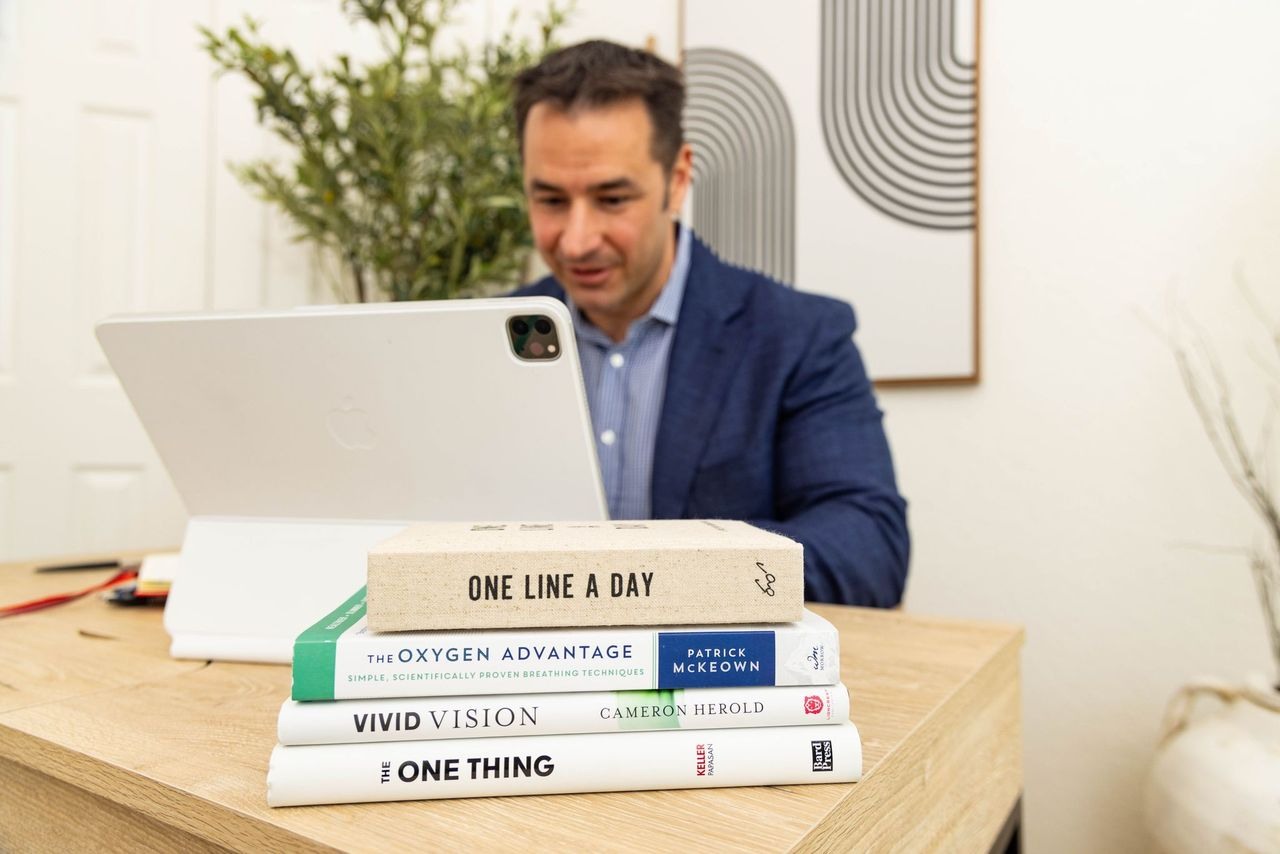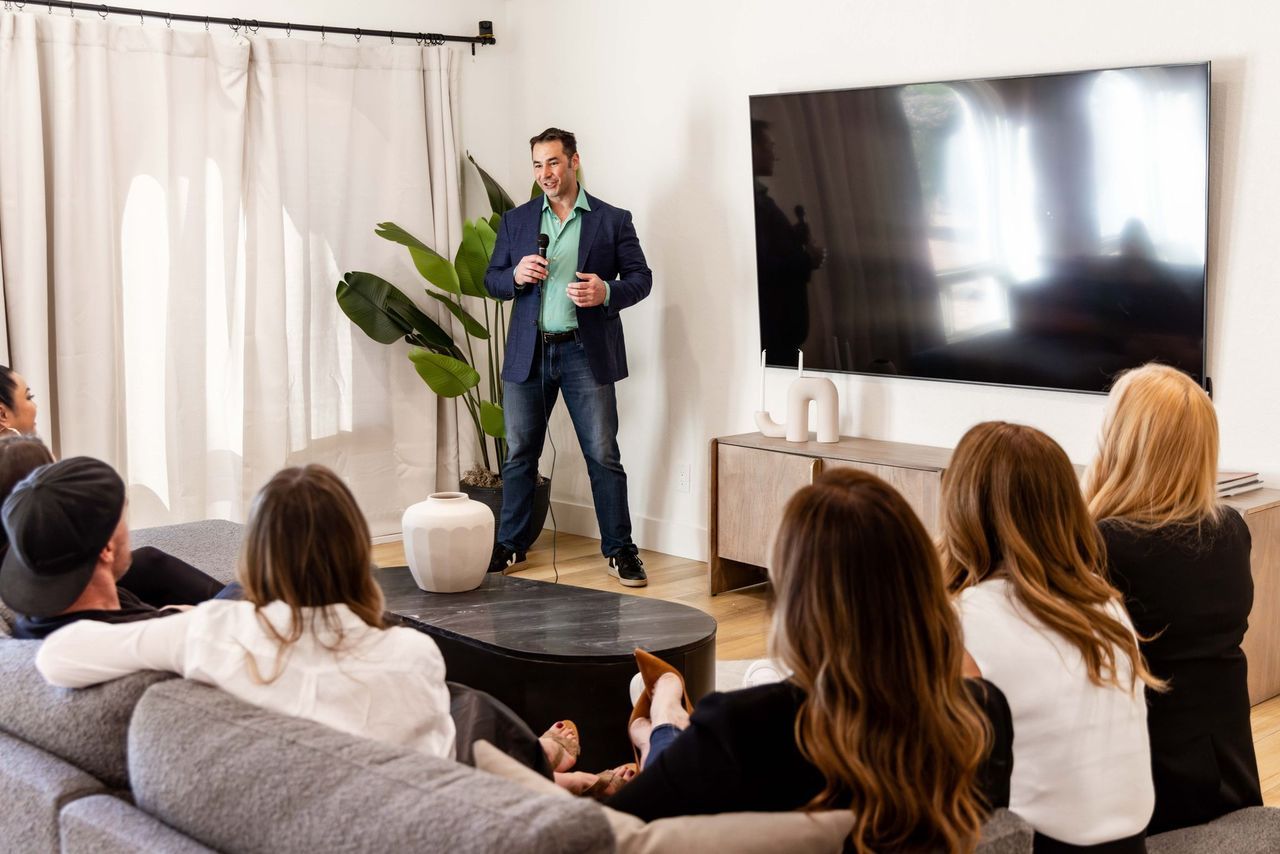How to Improve Yourself Through Accountability and Reflection

Introduction: Growth Doesn’t Happen by Accident
I’ve been a member of Entrepreneurs’ Organization (EO) for over 15 years. And early on—right after joining my local chapter of this international network—I stumbled into something that would end up having one of the biggest impacts on my life: a peer group called Forum.
Forum is EO’s version of a personal board of advisors. It’s a group of 6 to 12 entrepreneurs who meet every single month. No skipping. No rescheduling. Just consistent, honest, reflective conversations with people I’ve grown to deeply trust and respect.
Over the past decade and a half, I’ve sat with the same core group of guys once a month to share what’s going on in my life—both business and personal. And while the group’s feedback and insights are incredibly valuable, the real power of the group comes from something even deeper: accountability.
Knowing I have to show up every month and share my most meaningful updates—with people I respect and don’t want to let down—has completely transformed how I operate. That accountability, combined with a regular rhythm of reflection, has been one of the most effective tools for improving myself. And in this post, I’ll share why that is—and how you can apply it to your own life.
Accountability: The Growth Tool You Can’t Escape
There’s something uniquely powerful about knowing that seven other sharp, driven people are expecting you to show up prepared—with clarity, honesty, and impact.
Every Forum meeting, each of us is expected to share a five-minute update. That’s it—just five minutes. But it has to be meaningful. Which means you have to reflect, prioritize, and think hard about what actually mattered in the past 30 days.
And here’s the key: you can’t wing it. You can’t fake it. You can’t hide behind surface-level fluff. These people know you too well. So you’re forced to dig deep. And that expectation—that you’ll be called to account, every single month—has a compounding effect.
I find myself thinking about my next Forum share the moment the previous meeting ends. That internal accountability starts shaping my decisions. “Is this something I’d be proud to share with the group?” “Am I on track with what I said I wanted to do?”
That’s the magic. The knowing you have to show up. It raises your baseline. It turns reflection into a habit—and performance into a byproduct of consistency.
Reflection: Your Monthly Reality Check
The preparation for those meetings is more than just a bullet point list. There’s a process we’re encouraged to follow—a structured look back over the previous month, where we ask ourselves:
- What were my biggest wins?
- Where did I struggle?
- What emotions came up?
- What themes or patterns are emerging?
- What lessons am I learning?
Taking the time to sit with those questions—month after month, year after year—has taught me how to see myself clearly. And that reflection doesn’t just help me in the room. It affects how I make decisions, set goals, and move through challenges.
Even outside of EO, this type of monthly reflection is one of the most powerful self-improvement tools I know. It helps you calibrate. It helps you see momentum you might have missed. It helps you realize when you’ve drifted off course.
And maybe most importantly—it helps you get honest with yourself.
Reflection + Accountability = Compounding Growth
The real game-changer isn’t just accountability or reflection. It’s the combination.
Accountability without reflection can become performative. You’re doing things just to check a box.
Reflection without accountability can become passive. You see the insights, but you don’t act on them.
But when you have both? You get:
- A structure to track your progress
- A reason to stay honest with yourself
- A circle of people who will challenge and support you
- And a rhythm that compounds every month
This process has helped me navigate some of the most pivotal moments in my life. Selling a company. Starting new ventures. Navigating family challenges. Re-evaluating priorities. None of that would have been as clear or intentional without the structure of monthly accountability and honest reflection.
How You Can Apply This In Your Own Life
You don’t need to join EO to benefit from these tools. Here’s how you can get started.
Step 1: Create a Monthly Check-In Ritual
Block out 30–60 minutes once a month. Use prompts like:
- What worked?
- What didn’t?
- What was the best part of the month?
- What drained me?
- What do I want to change?
Step 2: Find Your Accountability Coach or Group
Most people start with self accountability and that’s a great place to start. Self accountability is foundational and something you never want to lose. Now, you need to add external accountability to that. The classic trap is looking for free accountability because you believe in your own willpower and discipline and you figure you don’t need to pay for something you can do for yourself. The reality is that the more you have a stake, the more powerful the accountability is. You can raise the stakes by:
- Picking an accountability coach or group that you have high respect for and don’t want to let down
- Investing money, ideally an amount that makes you feel uncomfortable because it will motivate you to deliver on the accountability
- Having penalties for yourself when you fail at accountability and rewards for when you do
Whichever path you pick, choose people you trust—people who are growth-minded and willing to be honest.
Commit to a regular check-in. Monthly is ideal. Keep it structured. Keep it consistent.
Step 3: Track the Trends
Start noticing patterns. Where are you stuck? What themes keep popping up? What lessons are repeating themselves? This is where the growth is hiding.
Step 4: Share With Intention
Before each check-in, distill your updates into the most impactful updates. Picking 3–5 insights or stories works far better than a laundry list of updates. What matters most this month? Don’t try to impress. Try to be real. Be prepared that distilling down to the most impactful things takes time, effort, and practice. 
Final Thoughts: Show Up, Share Honestly, Repeat
Improvement doesn’t just happen. It’s earned. And one of the most powerful ways to earn it is to show up consistently, reflect honestly, and surround yourself with people who won’t let you hide.
Accountability isn’t pressure—it’s fuel. Reflection isn’t indulgent—it’s necessary.
If you build even a lightweight version of this rhythm into your life, I promise you’ll start seeing changes—in your focus, your self-awareness, your performance, and your peace of mind.
And if you’re lucky enough to find a group that you can grow with for 15+ years like I have… well, that’s one of the best gifts you’ll ever give yourself.
Want help creating your own system of accountability and reflection?
Fill out the form below and let’s talk.
